Philip Metres
One Tree
What do you notice about how you behave in times of conflict? Do you tend toward avoidance? Or compromise? Or collaboration? Or competition? Or accommodation?
This poem describes a conflict between neighbors: a tree hangs over a fence. The owners love this tree; their neighbors don’t. Somebody responds directly, somebody else avoids, a chainsaw appears. Suddenly this conflict becomes a parable for all conflicts, illustrating how deep they can go and how often they cannot be resolved with a question about what to do.
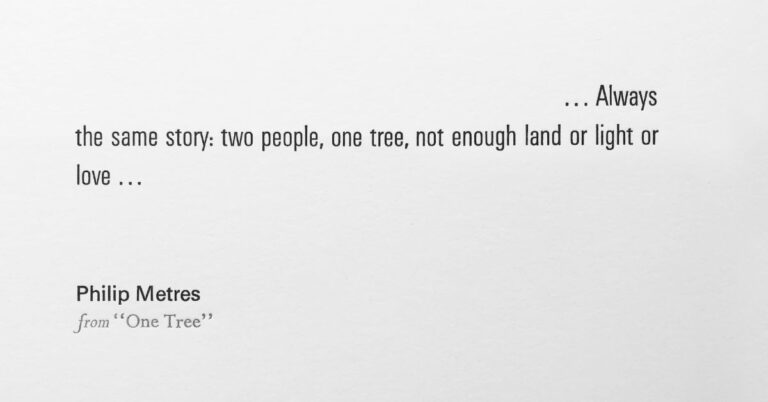
Image by Expedition Press/Expedition Press, © All Rights Reserved.
Guest
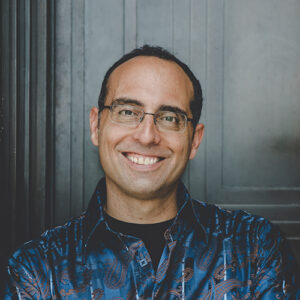
Philip Metres is the author of Shrapnel Maps, Sand Opera, and The Sound of Listening: Poetry as Refuge and Resistance. He has been awarded fellowships from the Guggenheim and Lannan Foundations, and received three Arab American Book Awards, the Adrienne Rich Award, and the Hunt Prize. He is a professor of English and director of the Peace, Justice, and Human Rights program at John Carroll University.
Transcript
Pádraig Ó Tuama, host: My name is Pádraig Ó Tuama, and poetry and conflict have always had a lot in common, for me. I grew up with a lot of conflict and lived in a lot of conflict and worked in a lot of conflict. And poetry has always taught me how to choose words carefully, how to choose words simply, and to imagine that words have power to create or destroy.
[music: “Memoriam” by Gautam Srikishan]
Ó Tuama: “One Tree” by Philip Metres:
“They wanted to tear down the tulip tree, our neighbors, last year. It throws a / shadow over their vegetable patch, the only tree in our backyard. We said no. / Now they’ve hired someone to chainsaw an arm—the crux on our side of / the fence—and my wife, in tousled hair and morning sweat, marches to stop the / carnage, mid-limb. It reminds her of her childhood home, a shady place to hide. / She recites her litany of no, returns. Minutes later, the neighbors emerge. The / worker points to our unblinded window. I want to say, it’s not me, slide out of / view behind a wall of cupboards, ominous breakfast table, steam of tea, our two / young daughters now alone. I want no trouble. Must I fight for my wife’s desire / for yellow blooms when my neighbors’ tomatoes will stunt and blight in shade? / Always the same story: two people, one tree, not enough land or light or love. / Like the baby brought to Solomon, someone must give. Dear neighbor, it’s not / me. Bloom-shadowed, light-deprived, they lower the chainsaw again.”
[music: “Flor Vjell” by Blue Dot Sessions]
Ó Tuama: I love this poem because it feels like two parts of my world have come together. I think the interests in my whole life have always been religion, conflict, and poetry. And, where preferable, I like poetry about conflict and religion. And this poem is so brilliant, in terms of how it describes the escalation of conflict. All my training, initially, in conflict mediation, was about mediating neighbor-to-neighbor conflicts, because that’s such an intimate place, where a person finds their home. And it can be about a fence, it can be about a tree going over a fence, it can be about noise, it can be about a dog, it can be about one side of the conflict being up late and the other side being up early, it can be about your kids; it can be about so much, but neighbor-neighbor conflicts are really, really tense and intimate. And what seems simple sometimes goes very, very deep. And this is a classic example of what seems simple going so very, very deep.
[music: “Outstretched Hand” by Gautam Srikishan]
Ó Tuama: So the brilliant thing about this poem is that it isn’t just side A and side B. It’s not just, this household thinks this way, and the other household thinks the other way, about this particular tree. His wife, he describes her “in tousled hair and morning sweats, marches to stop the carnage mid-limb.” She is so clear what she thinks. She’s magnificent. And the neighbors seem to feel strongly, but they’ve brought in a worker to do the work. But the worker is just referring back to the neighbors. And it seems like, at the end, that the chainsaw lowers again.
But he just wants to hide. He doesn’t seem to want to have anything to do with this feeling that his wife has about the memories that she associates from her childhood with this particular tree in the backyard. And he isn’t helping her; he isn’t necessarily taking the side of the neighbors, either. He seems to feel in between, perhaps literally on the fence, to describe this.
But the poem, and why it’s so brilliant as a poem, is that it’s frustrating. It leaves you without knowing what’s going to happen.
I think of that classic form of short story, called a parable. So often, I hear parables spoken about really poorly, because parable — this is speaking in the context of theology — a parable, typically, is a short story that doesn’t come to an easy ending, a short story that leaves all kinds of tendrils at the end, and you’re thinking, What the hell am I supposed to do with this? It’s an irritant. It’s meant to get under your skin and cause you to think in the moment, rather than something that says, “Here’s how you live your life,” in a nice, neat package. And this poem is a parable in the truest sense of the word, in that it gets under the skin. You feel these caricatures coming towards you, the worker, the neighbors, the spouse, the poet, the children, everything involved; the history that somebody has invested into a tree; the future that somebody’s invested into the possibilities of tomatoes growing. Everything is all there, and there’s a tree there, and there’s a fence. What’s gonna go on? And you’re just left with all that in front of you. It’s almost like a Garden of Eden story, this poem, except this Garden of Eden has neighbors and frustrations. And in it, there’s these archetypes of people, trying to figure out, how the hell do we live near each other in a way that we live well and don’t have to feel like we’ve got to tame ourselves down?
There’s a throwaway line toward the end of this poem, about Solomon, the wise king in the Hebrew bible, where two people who were arguing about the parentage of a baby brought their case to Solomon. So these two women came with a baby, each saying that they were the mother of the child. And the king said, “Cut the baby in half.” It’s a brutal story. And the one who immediately recanted and said, “No, no, no, OK,” so the other one should take the baby, Solomon said, “Well, you’re clearly the mother of that child, because only a mother of the child would be willing to not see their child, in order that the child survives.” And it’s a brutal parable, because it shows the levels at which violence runs deep in us, and the depth of fighting that we can find in our imaginations and in ourselves, and the places that we’re brought to in the midst of conflict. What conflict reveals about what’s possible in us can sometimes arrest us with serious worry.
[music: “First Grief, First Air” by Gautam Srikishan]
Ó Tuama: One of the things that Philip Metres is doing in this poem is showing that conflict isn’t just about two sides; that conflict always has many sides and that a side that might be perceived as monolithic probably has internal divisions, and that the other side, similarly, has its own sophistications. There’s always going to be somebody who doesn’t like conflict, who is caught up in conflict. That might be lots of people. Some people love it, some people hate it.
You’ve got this line in the poem, “Dear neighbor, it’s not me.” And the setting for this poem is land, just the land of two neighbors right next door to each other; probably not enormous amounts of land. But that, as a metaphor, is really part of the area that Philip Metres as a poet is profoundly interested in. This book, Shrapnel Maps, concerns itself trying to put forward poems that involve Israel and Palestine, in a way where he isn’t pretending that there’s a neutral middle, but that he is imagining that, coming from one particular point of view, he can hold a standard of integrity up to himself, where he isn’t caricaturing people who might be perceived to be on the other side.
And that, I think, is so brave, because he brings — as soon as he speaks about land, I think of Ireland. I think of Cyprus. I think of Israel and Palestine. I think of so many places around the world where there’s a border put down like a big fence, and people are trying to figure out, what does it mean to live near that fence right now? Where I am now, I’m in County Fermanagh, and I’m half a mile from the county bounds with County Donegal. And for the last hundred years, these have been considered in two different jurisdictions, Northern Ireland and the Republic of Ireland. I don’t like those classifications, but that border has been powerful, whether I like it or not. And I look at that border every time I pass it, when I’m out for a walk, and I just find myself constantly thinking about how somebody’s imagination about a line on a map has done so much over the last hundred years. And so this poem brings out the fact that conflicts will go so deep and won’t be resolved easily with a question about what to do, and that sometimes, the imagination of one about how it can be resolved sparks off so many more conflicts in the imagination of the other, and that a deep amount of collaboration — and with that comes trust and imagination and creativity — all of those things are needed to imagine something in the future, where cohabiting side-by-side, in land that borders each other
cut stumble or in land that’s shared, can be something that’s fruitful for all.
[music: “Ashed to Air” by Gautam Srikishan]
Ó Tuama: This is the opening poem in a book, Shrapnel Maps. And one of the things that’s brilliant about having this as the opening poem in the book is that conflict often surprises people. Everything’s fine until it isn’t. And it’s not like you get a memo to prepare you to be dropped into conflict with your neighbor, and the fact that that conflict will open up conflict between you and your spouse or you and whoever you live with. Suddenly, it’s happened, and you’re there. And so much is already happening at the wrong time, and you’re trying to figure out, what happened? And what do I do now? And all of these things feel like they’re pressuring you, bullying you, in terms of trying to figure out what’s my response and how can I have the right kind of conversations with people? Some people will respond intuitively, some people will want space, and then you’re having conflict about conflict and conflict about conflict styles. And all of that can feel like it’s getting very loud. And some people can surf that loudness and find creativity in it, and other people feel the need to step back. Neither of those is better than the other, but conflict can often feel remarkably inconvenient.
And one of the really interesting things that this poem does is, while frustrating us, it has this line: “Always the same story: two people, one tree, not enough land or light or love.” And those three words, beginning with “L” — land, light, love — there’s the imagination that we can expand land; some people try, and that works, or doesn’t, while light — can we increase light? I suppose we can, artificially. But the thing that we can do something about is this word “love.” What does it mean to imagine that there might be love in between people who are fighting about a tree?
And that isn’t meant to sound like a daisy chain. This is meant to sound as muscular and demanding as love is. Love is one of the most difficult things to do in human community, but yet, in politics and conflict resolution, love is often left out of the conversation because it seems like either airy-fairy or impossible. And I like the imagination that he has here, to point out that there does need to be a practice of love in the context of this small conflict that he’s imagining between two neighbors. What does love look like, and not just between neighbor A and neighbor B: what does love look like in a household that suddenly does seem like it’s ripped apart, between one spouse who wants to go out and defend the tree, another spouse who wants to hide in a corner and say, “It’s not about me,” and then these children that are in their care? What’s love going to look like there? What’s love going to look like in the context of people who disagree with each other, never mind that household then in conversation with another household who disagree with them?
And in the midst of all this, you’re still left within the present moment about how, no matter what the past is, do we speak to each other now?
[music: “Outstretched Hand” by Gautam Srikishan]
“One Tree” by Philip Metres:
“They wanted to tear down the tulip tree, our neighbors, last year. It throws a / shadow over their vegetable patch, the only tree in our backyard. We said no. / Now they’ve hired someone to chainsaw an arm—the crux on our side of / the fence—and my wife, in tousled hair and morning sweat, marches to stop the / carnage, mid-limb. It reminds her of her childhood home, a shady place to hide. / She recites her litany of no, returns. Minutes later, the neighbors emerge. The / worker points to our unblinded window. I want to say, it’s not me, slide out of / view behind a wall of cupboards, ominous breakfast table, steam of tea, our two / young daughters now alone. I want no trouble. Must I fight for my wife’s desire / for yellow blooms when my neighbors’ tomatoes will stunt and blight in shade? / Always the same story: two people, one tree, not enough land or light or love. / Like the baby brought to Solomon, someone must give. Dear neighbor, it’s not / me. Bloom-shadowed, light-deprived, they lower the chainsaw again.”
[music: “Praise the Rain” by Gautam Srikishan]
Lily Percy: “One Tree” comes from Philip Metres’ book Shrapnel Maps. Thank you to the Permissions Company, on behalf of Copper Canyon Press, who gave us permission to use Philip’s poem. Read it on our website, at onbeing.org.
Poetry Unbound is Chris Heagle, Erin Colasacco, Serri Graslie, Eddie Gonzalez, Lilian Vo, Christiane Wartell, Karen Navarre, Karyn Towey, Sue Ariza, and me, Lily Percy. Our music is composed and provided by Gautam Srikishan and Blue Dot Sessions. This podcast is produced by On Being Studios, which is located on Dakota land. We also produce other podcasts you might enjoy, like On Being with Krista Tippett, Becoming Wise, and This Movie Changed Me — find those wherever you like to listen. And if you want even more Pádraig and poetry in your life, visit us at onbeing.org, where we’ve recently launched an entirely new way to Experience Poetry. Listen, watch, or read hundreds of poems from our collection.
Books & Music
Recommended Reading
The On Being Project is an affiliate partner of Bookshop.org and Amazon.com. Any earnings we receive through these affiliate partnerships go into directly supporting The On Being Project.






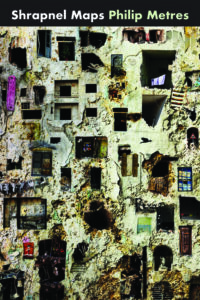
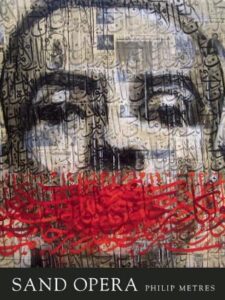
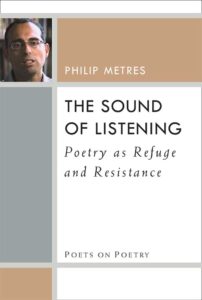

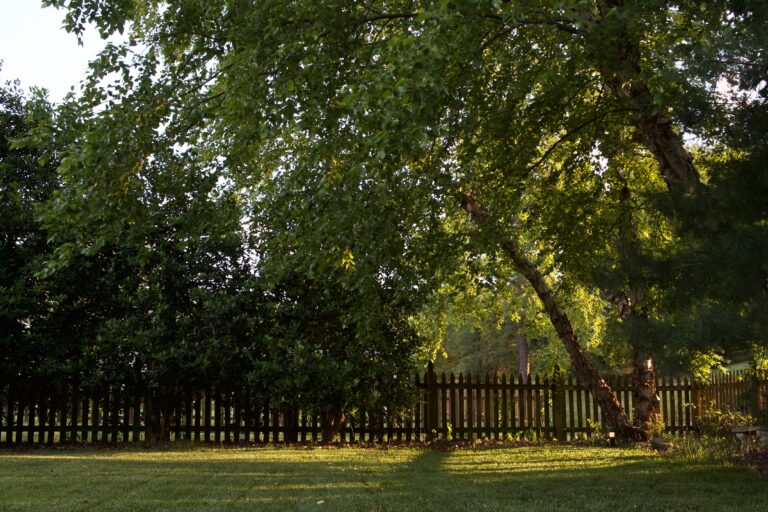
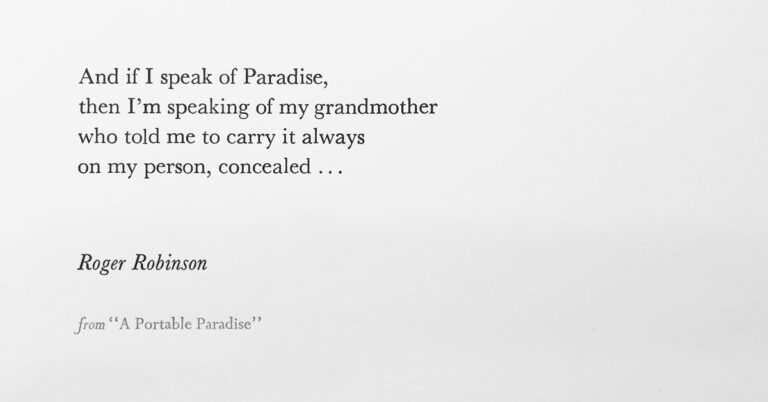
Reflections